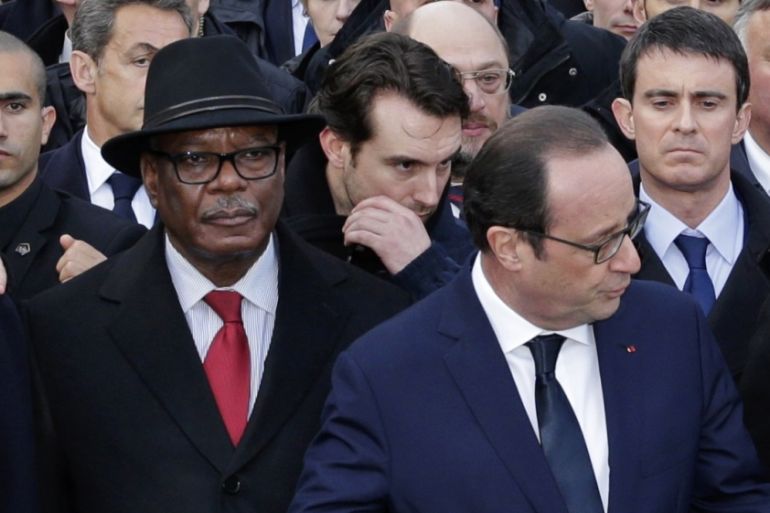Who wins if Washington loses in the Middle East?
With Washington’s support for Israel now shaken, Palestinians may yet benefit from Europe’s growing influence.

While the United States remains the lead western player in several major Middle East conflicts, a change is quietly taking place in the international arena.
Diplomats observing the P5+1 negotiations with Iran in Lausanne noticed a much more independent role for France than in previous rounds, as it demanded a tougher position on the monitoring of the Iranian nuclear programme. France is also set to take a lead role in pushing for a comprehensive UN Security Council resolution.
France’s increased visibility is part of a much wider European push for a more active foreign policy, especially regarding its southern Mediterranean neighbours.
|
|
The destabilisation of the Middle East has a direct effect on Europe, with a huge increase in migrants reaching the northern shores of the Mediterranean.
Erosion of US influence
But the increase in European involvement in the Middle East is largely the result of the erosion of Washington’s influence, due in large part to Obama’s foreign policy doctrine.
US President Barack Obama campaigned on a non-interventionist policy and has largely ended the US military presence in Iraq, while also downsizing the military footprint in Afghanistan.
While the US is trying to regain some of its influence lost due to the rise of ISIL and other radical groups, the contraction of US power is evident.
It is too early to estimate how the expanding European role in the Middle East will be translated on the ground. Europe is home to the biggest trade partners for most countries in the region, but for years it has been unable to translate this financial role into political influence.
Unlike the US executive branch, which is able to exercise a unified foreign policy (despite the loud voices in Congress), Europe at times speaks in contradictions when it comes to its foreign policy. Although a lot of effort has been made in Brussels to unify these voices, the fact remains that as sovereign member states of the European Union, each nation has an independent voice. This difference is most evident when it comes to Palestine. Diplomatic relations between European member states and Palestine vary from full recognition and exchange of ambassadors to non-recognition and low-level diplomatic missions.
|
A pivot of geopolitical leadership from the US to Europe may prove to be much more appealing to the Palestinians – and their cause.
|
When the European Union’s headquarters in Brussels is unable to whip all the countries into a single stance, it often allows for some member states – especially among the larger and founding members – to take a lead role.
Emerging French role
France’s attempts to pass a Security Council resolution on Palestine will be the greatest test yet of this new French-led European role. If France is able to get the tacit agreement of the Palestinians and Israelis, as well as avoid a US veto, it would indicate that this new role is beginning to work out.
It is difficult to imagine the US forfeiting its role in attempting to resolve the Palestinian-Israeli conflict, due to the influence of the Israel lobby in Washington and throughout the US.
But the high-stakes Obama-Netanyahu disagreement could very well produce the moment in which Washington could symbolically wash its hands of being Israel’s political shield, while continuing to be its military and strategic ally.
Obama made this position clear in his lengthy interview with New York Times columnist Tom Friedman, reiterating the unwavering US position in defending Israel’s security. Leading Israeli columnist Nahum Barnea has also noted that the White House is willing to seriously upgrade a mutual defence agreement and guarantee the military advantage of Israel over its neighbours.
While Obama supports Israel’s military, he notably didn’t demonstrate political support of its continued occupation and refusal to implement the two-state solution.
Change in the future?
A stepped-up European role in the Middle East, with France taking the lead in attempting to revitalise the Palestinian-Israeli peace process on the basis of recognising the Palestinian state, will be welcomed in many capitals – not just in the region, but around the world.
The success of this new move will depend in large part on Washington and Tel Aviv. Many fear that the US will continue to play politics in this region and might try to link its role – especially regarding its Security Council veto – to how Netanyahu and company behave in the crucial coming months before the signing of the Iran agreement, let alone how Congress will react.
Palestinians watching this nail-biting international game feel again that they are the weakest link. They might, possibly, benefit from the various disagreements between the parties, but it is clear that they are not able to have much of an influence on how the game is being played out – especially with the US continuing to play the key role in the region.
A pivot of geopolitical leadership from the US to Europe may prove to be much more appealing to the Palestinians – and their cause.
Daoud Kuttab, an award-winning Palestinian journalist, is a former Ferris professor of journalism at Princeton University.
The views expressed in this article are the author’s own and do not necessarily reflect Al Jazeera’s editorial policy.
